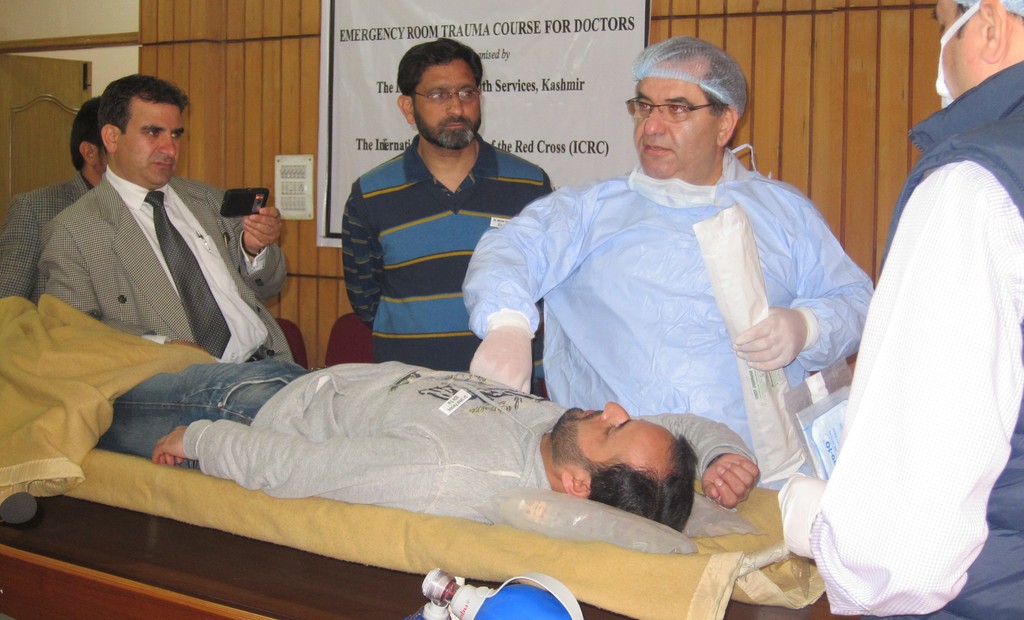The ICRC in collaboration with the Directorate of Health Services, Kashmir (DHSK) organised an Emergency Room Trauma Course (ERTC), the first of its kind in Jammu and Kashmir from 8-12 April, 2013. The ERTC is an advanced training course on life support that enables doctors to deal with trauma cases with a systematic clinical approach. During this course, the ICRC trained 20 doctors, including specialists such as orthopaedic surgeons and anaesthetists working in different hospitals spread across the valley. Two specialist surgeons – Dr. Hassan, who is working as chief surgeon with the ICRC and Dr. Asa Molde who is consultant surgeon for ICRC – conducted the training.
“The efficiency of emergency care plays a key role in determining the clinical outcome and recovery of the patient. By enhancing the skills of our doctors in managing emergency trauma cases, we expect to improve emergency care in our hospitals, especially at the district level,” said Dr. Saleem-ur-Rehman, Director, Health Services Kashmir, while highlighting the importance of the course.
The course provided an overview of the basics of trauma management in an emergency room setting. Besides a series of lectures, each participant was exposed to practical demonstrations, such as how to examine airways and ventilation, head and spinal trauma, limb injuries, to name a few, followed by simulated diagnostic exercises. “The beauty of this course lies in its participatory methodology and its focussed approach towards making the optimum use of limited resources in a situation with limited options,” said Dr Iqbal Ahmad, an anaesthetist, working in one of the hospitals of Kashmir.
Another participant, Dr. Irshad Tabassum, an orthopaedic surgeon said, “it provided an opportunity for me to learn the essential skills of examining and resuscitating a trauma case. It will enable us to follow a certain systematic protocol while examining a patient. This way we are unlikely to miss injuries which could prove fatal if not diagnosed and treated on time.” Appreciating the efforts of the DHSK and the ICRC, the participants also emphasized that the lessons learnt from the course should be put into practice.


